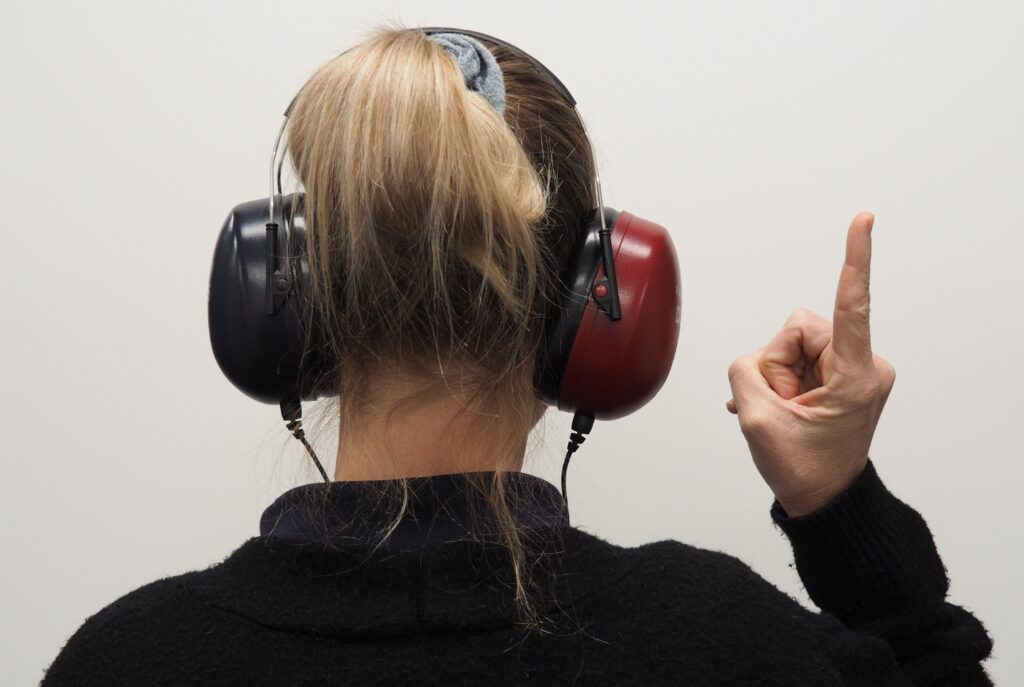If you often feel physically exhausted after speaking to people, then it might be worth going for a hearing test. Listening fatigue is a condition that affects millions of people around the world and can lead to increased stress levels. When you are dealing with hearing loss, the simple thought of having a conversation in a crowded or noisy environment can fill you with dread and anxiety.
However, what many people don’t realise is that when you are losing your hearing, this forces your brain to work harder than it normally would, so something as simple as a conversation on the phone with a loved one can leave you feeling wiped out. When you need to strain constantly to follow conversations or watch a show or film on the TV, everyday activities can start to become more stressful than they need to be.

Listening Fatigue Explained
Listening fatigue that is related to hearing loss is a condition that is caused by the increased effort you will need to put in to simply listen to and understand others. Something as simple as having a conversation with a friend in a noisy area like a coffee shop can trigger the symptoms of listening fatigue.
Consider all the activities in your life that require you to listen, such as going to church, meetings at work, watching TV, attending family gatherings and more. When you’re dealing with hearing loss, clearly listening and understanding to what’s being said can take up a lot more energy.
Many people with hearing loss end up suffering with listening fatigue due to the additional energy that is spent on concentrating harder to hear and understand, lip-reading, frequently asking people to repeat themselves, or trying to guess what was said.
Why Does Listening Make You Tired?
When you are struggling to hear, the brain needs to work harder than it normally would to process, interpret, and assign meaning to sounds. As a result of this, your brain is slower when it comes to applying the information you’ve been given, using brainpower that you’d normally put towards other activities.
Many people with hearing loss spend almost all of the day straining to hear, which not only leaves them feeling mentally exhausted, but physically fatigued too. Some of the most common signs and symptoms include low energy and sleepiness, reduced work performance, trouble concentrating, mood swings and changes, and increased stress.
How to Deal with Listening Fatigue
If you suspect that yourself or a loved one might be dealing with hearing loss and listening fatigue, then speaking to a hearing health care professional is the first step. You can visit phonak.com/uk/en/online-hearing-test.html to arrange a hearing test. Having your hearing tested will help you determine if hearing loss is the main reason behind why you or a loved one is feeling more fatigued and exhausted than usual.
If you are diagnosed with hearing loss, then hearing aids will typically be offered as a solution to deal with listening fatigue, by making it easier for you to hear and no longer face the need to strain or use up extra energy when having conversations, watching the TV, listening to radio or doing other everyday tasks.
Hearing aids today are very sophisticated and can make it much easier for you to hear sounds and understand speech in various environments, ultimately reducing the amount of energy that you are spending on communicating with others. Many hearing aids will include features that you can use to reduce background noise in crowded environments, for example, allowing you to clarify the sounds that you want to hear and reduce listening fatigue significantly.
Listening Fatigue Impact on Mental Health
Listening fatigue can significantly increase the risk to a person’s mental health. Hearing loss, when left untreated, can often increase the risk of mental health conditions such as depression, anxiety and stress. People who are suffering with listening fatigue due to straining to hear conversations and sounds might be more likely to spend less time doing things that they enjoy and socialising with others, both of which can lead to a higher risk of depression, anxiety, and other mental health complaints.
When it takes a lot of effort just to have a conversation with a friend or loved one, then people who are dealing with hearing loss might simply decide to forgo this altogether to avoid the symptoms of listening fatigue including physical exhaustion and stress. Hearing loss can also lead to a rise in anxiety, particularly among people who may be worried about mishearing and misunderstanding others and the potential embarrassment of these situations.
Hearing loss doesn’t just lead to an inability or a decreased ability to hear sounds. It can also cause listening fatigue due to the additional work that the brain needs to put into hearing.

